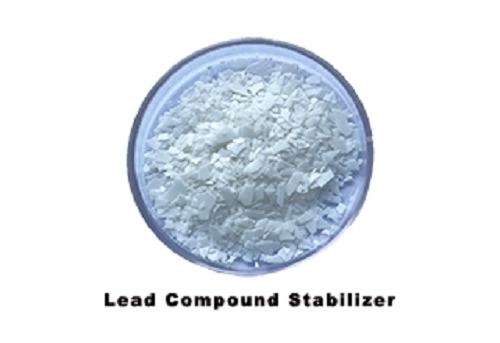PVC Stabilizer

Termékleírás
PVC Stabilizer
Excellent quality, green environmental protection, choose HAIRUITE PVC stabilizer in polymer, make your products more outstanding!
PVC stabilisers are essential additives in the processing of polyvinyl chloride (PVC) materials, designed to prevent degradation caused by heat, light, and oxygen during manufacturing and usage. The primary function of stabilizers is to enhance the thermal stability of PVC, preventing decomposition at high processing temperatures and thereby extending the lifespan of the final products.
Types of PVC Stabilizers
PVC Compound Stabilizer
PVC compound stabilisers are cost-effective and thermally stable, and have been widely used in the field of PVC products such as pipes, fences and floors. With the progress of technology, now the composite stabiliser adopts a new special process, and pvc has a better compatibility, both thermal stability and lubricity function.
PVC Ca/Zn Stabilizer
PVC Calcium-zinc stabiliser is a stabiliser used in the processing of polyvinyl chloride (PVC) materials. During the processing of PVC, due to the influence of temperature, oxidation and other factors, PVC materials are prone to decomposition, discolouration, degradation and other phenomena. Calcium-zinc stabiliser is compatible with PVC, low dosage, low volatility and other high quality specific.
The Role of Stabilizers in PVC' s Longevity and Durability
Strengthening Longevity: Stabilizers serve as essential additives in PVC formulations, shielding the material from degradation factors like heat and light. This protection enhances the longevity of PVC products, ensuring they maintain their structural integrity and performance over an extended period.
Ensuring Durability: By effectively combating degradation processes, stabilizers bolster the durability of PVC materials, making them resistant to discoloration, embrittlement, and other forms of deterioration. This enhanced resilience ensures that PVC products can withstand various environmental conditions and maintain their quality over time.
Comparative Analysis of Different Types of PVC Stabilizers
PVC compound stabilisers: PVC compound stabilisers is the traditional PVC stabiliser with good thermal stability and lubricity, good compatibility with PVC, high heat stabilisation efficiency and low dosage. At the same time can improve product aging, decomposition and surface finish is mainly used for pipes, corrugated pipes, cable materials and other PVC products.
PVC Calcium-zinc stabiliser: Calcium-zinc stabilizer is a white or yellowish powder stabilizer, can replace lead salt stabilizer, there is no sulphation problem; has good dispersion, can improve the mechanical properties of the products; has superior thermal stability and weather resistance.
Other stabilisers:In addition to the stabilizers mentioned above, there are some other types of PVC stabilizers, such as organic zinc stabilizers, barium stabilizers and so on. These stabilisers have their own advantages and disadvantages in terms of stability, price and environmental protection.
PVC Stabilizer Manufacturing Process
1. Raw Material Selection
Lead-Based Stabilizers: Lead compounds such as lead stearate, lead sulfate, and lead carbonate.
Calcium-Zinc Stabilizers: Calcium stearate, zinc stearate, and other organic acids.
Tin-Based Stabilizers: Organotin compounds like dibutyltin dilaurate and dioctyltin maleate.
Organic Stabilizers: Organic compounds that do not contain heavy metals, such as certain phosphites and epoxides.
2. Chemical Reactions
Synthesis: The raw materials undergo chemical reactions to form the stabilizer compounds. For example, in the case of calcium-zinc stabilizers, calcium and zinc salts react with stearic acid to form calcium stearate and zinc stearate.
Catalysis: Catalysts may be used to speed up the chemical reactions and improve yield.

